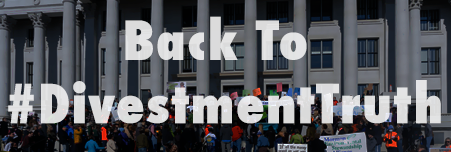Divestment Could Deny Students Access to Higher Education
Activists will soon convene in cities across the country to pressure universities and individuals to “divest” any stocks and bonds they own in natural gas, oil, and coal companies. The organizers of “Global Divestment Day” call this a “moral” cause, but is it? That depends on whether you think it’s moral to deny students access to higher education.
A new report shows that fossil fuel divestment comes at a high price for those who can least afford it. Writing in The Wall Street Journal, economic consultant Daniel Fischel compared returns over a 50 year period for two investment portfolios: one that included energy stocks and one that did not.
The portfolio that contained energy stocks outperformed the divested portfolio by 0.7 percent, or 70 basis points. That’s equivalent to the growth of university endowments declining by $3.2 billion each year, the report found. As Fischel explained, “A reduction in wealth of this magnitude could have a substantial impact on the ability of universities to achieve their goals, such as the research, services and scholarships that they offer.”
There’s a reason most major universities want nothing to do with divestment—it means less money for the university, which could mean less merit or need-based financial aid for students. Last year, facing pressure from divestment activists, Tufts University President Tony Monaco spelled it out in simple terms:
To put the projected impact [of divestment] in perspective, $75 million would provide endowment income to fund scholarships for 100 undergraduates or annual stipends for 125 Ph.D. students, or fund the entire 2012 state appropriation for the Cummings School of Veterinary Medicine.
In short, in today’s environment, divestment would likely result in a significant reduction in operating funds and would have an immediate adverse impact on the educational experience at Tufts. It would not be prudent to expose the university to that kind of risk at this time. [Emphasis mine]
In other words, divestment could leave students without the financial support they need to continue their education. Other university presidents—Harvard, Duke, and Tulane, to name a few—have issued similar statements rejecting divestment. It’s difficult to see how depriving young people of a chance to earn a college degree is a “moral” cause, but that’s what divestment activists will soon fight for at a college campus near you.
To learn more about the radical divestment movement, click here.


Speak Your Mind